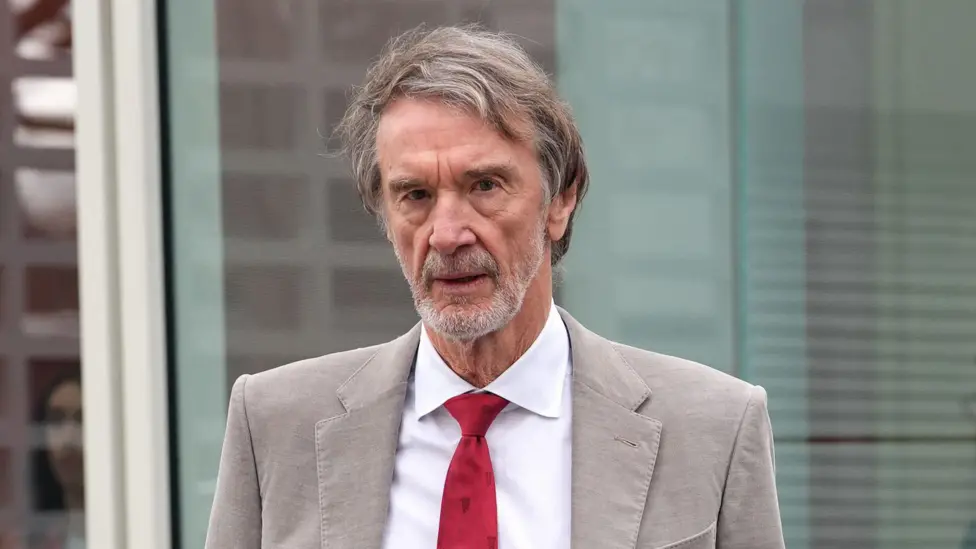Sir Jim Ratcliffe, Manchester United co-owner and chairman of the Ineos Group, has suffered a staggering £6.473 billion drop in his personal fortune over the past year, according to the latest edition of the Sunday Times Rich List. The 72-year-old’s net worth has shrunk from £23.519 billion to £17.046 billion, pushing him from fourth to seventh in the annual ranking of the UK’s 350 wealthiest individuals.
This dramatic fall represents more than a quarter of Ratcliffe’s total wealth and comes at a time when both his flagship petrochemical business and footballing venture have faced mounting scrutiny and financial pressure.
Ratcliffe’s Ineos Group completed the purchase of a 27.7% stake in Manchester United in February 2024, in a deal valued at approximately £1.25 billion. Alongside that minority stake came full control over football operations at Old Trafford, a shift that has sparked controversy among fans and insiders alike.
Since the Ineos takeover, Manchester United have implemented several unpopular cost-cutting measures. These have included two rounds of staff redundancies and an increase in ticket prices—moves that have drawn heavy criticism. Ratcliffe defended these actions in a BBC interview in March, stating that the club could have “run out of cash by the end of this year” without swift and decisive financial intervention.
Despite the backlash, Ratcliffe and Ineos are pressing ahead with ambitious plans to revitalise the club’s infrastructure. In March, Manchester United unveiled proposals for a new £2 billion, 100,000-seat stadium to be built near Old Trafford, describing it as an “iconic” future home for the club.
Ratcliffe has insisted that the financial pressures facing Ineos will not affect investment at United. However, signs of strain have emerged. Ineos pulled out of its sponsorship deal with New Zealand Rugby in February and ended its long-standing support of four-time Olympic champion Ben Ainslie’s America’s Cup sailing team. The company cited “cost-saving measures” across its operations, pointing to the beleaguered state of Europe’s chemicals industry, which has been hit hard by rising energy prices and heavy carbon taxes.
“Europe has become a very difficult place to do business for industrial companies,” Ratcliffe said in his March interview. “Energy prices in Europe are now five times higher than in America, where a lot of our competition is based.”
On the pitch, United’s performances have done little to lighten the mood. The club currently sits 16th in the Premier League with just two matches remaining. Their only hope for silverware—and a place in next season’s Champions League—rests on next week’s Europa League final against Tottenham Hotspur. Victory would not only salvage the season but potentially ease pressure on the club’s new leadership.
Ratcliffe’s turbulent year comes against the backdrop of broader shifts in the Sunday Times Rich List. While several billionaires, including Ratcliffe, have seen significant declines in wealth, top athletes are thriving. Golfer Rory McIlroy, fresh off completing a career Grand Slam at the Masters, now tops the Sunday Times 40 under 40 list, with his fortune climbing from £225 million to £260 million.
Other athletes seeing gains include boxer Anthony Joshua (£195m), tennis legend Sir Andy Murray (£110m), and England football captain Harry Kane, whose Bundesliga triumph with Bayern Munich helped lift his net worth to £100m—just enough to secure 38th spot on the under-40 list.
While McIlroy and his peers rise, Ratcliffe’s fall serves as a stark reminder of the volatility of both sport and industry. With Ineos under pressure and United’s fanbase divided, the next year may determine whether Ratcliffe’s Old Trafford gamble will ultimately pay off—or prove too costly.



